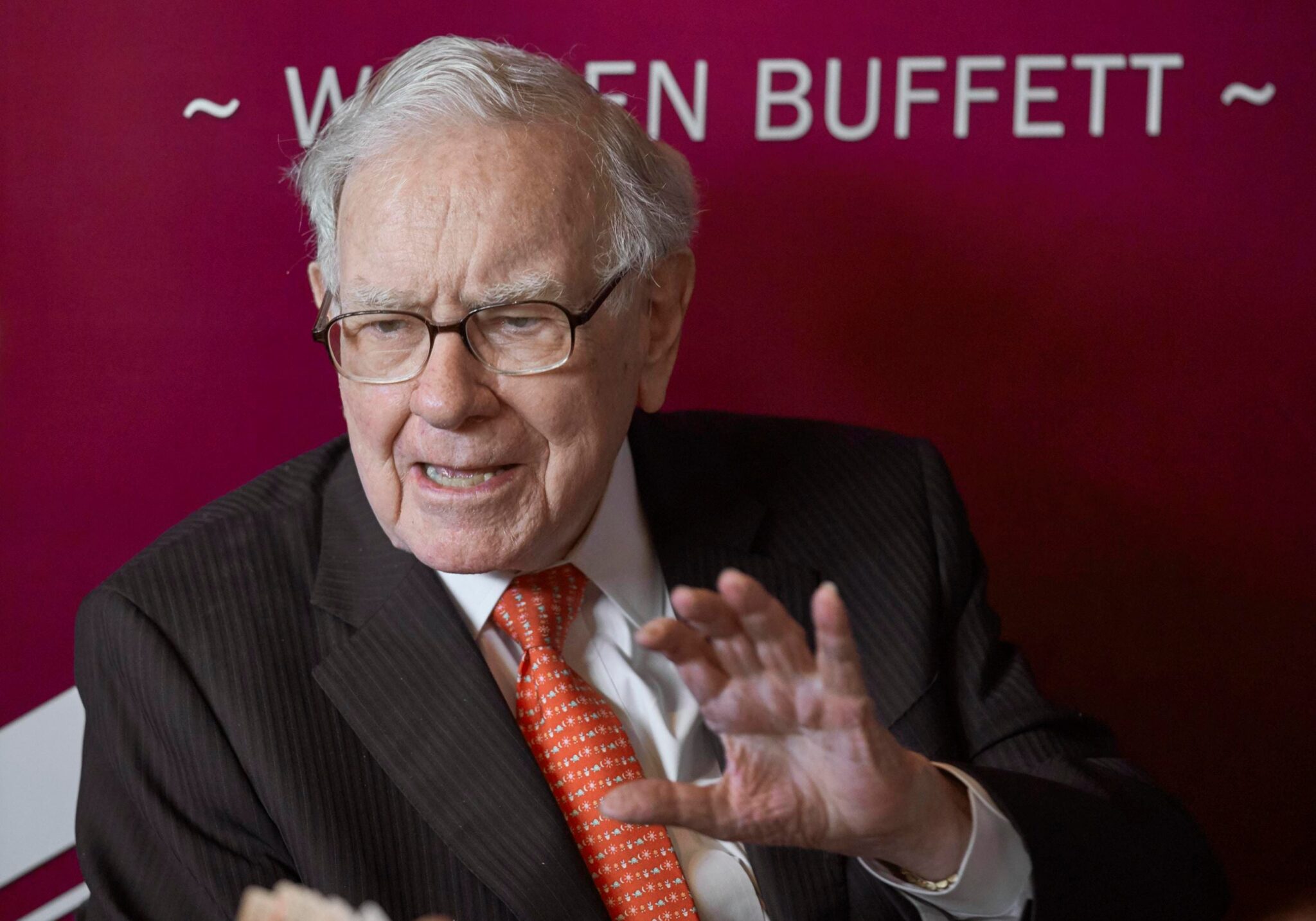
FILE – Warren Buffett, chairman and CEO of Berkshire Hathaway, speaks following the annual Berkshire … [+]
Berkshire Hathaway’s (BRK/A, BRK/B) fourth-quarter 13F was filed on February 14. This filing gives us a quarterly opportunity to observe what two of the greatest investors and their team are doing within Berkshire’s publicly traded equity portfolio. Berkshire has a large stable of wholly-owned entities, so this is just a slice of their investments. Berkshire’s fourth-quarter earnings and 2021 annual report on February 26 will provide more information about the operating companies.
This analysis looks at the Berkshire portfolio across a host of measures including 12-month forward estimated: price-to-earnings (P/E), price-to-sales (P/S), return-on-equity (ROE), enterprise value-to-earnings before interest, taxes, depreciation and amortization (EV/EBITDA), price-to-book (P/B), dividend yield, debt-to-EBITDA, and long-term earnings-per-share growth consensus estimates.
Berkshire Hathaway 13F Investment Portfolio – Valuations
Berkshire’s $331 billion very concentrated investment portfolio consists of 44 companies, one company more than last quarter. The top 5 holdings account for over 79% of the total portfolio. The top five holdings are Apple (AAPL), Bank of America (BAC), American Express (AXP), Coca-Cola (KO), and Kraft Heinz (KHC). Due to the significant holdings in Apple, Bank of America, and American Express, the portfolio is significantly overweight technology, staples, and financials relative to the S&P 500. This portfolio includes no industrials or utilities, but Berkshire’s wholly-owned entities include a large railroad, Burlington Northern Santa Fe, and multiple regulated utilities and pipelines.
Because the 13F does not include international stocks, Berkshire Hathaway announced the acquisition of about 5% of five Japanese trading companies at the end of August 2020, and these holdings are not part of this analysis: Itochu Corp., Marubeni Corp., Mitsubishi Corp., Mitsui & Co. Ltd., and Sumitomo Corp. Buffett indicated that these were intended to be long-term holdings, and Berkshire may increase its stake to 9.9%.
MORE FOR YOU
Berkshire Hathaway 13F Investment Portfolio – Sector Weights
Overall, the portfolio analysis reflects a slightly more expensive valuation than the S&P 500 while having better profitability (ROE) and better quality via lower debt. The long-term (next 3 to 5 years) consensus earnings-per-share growth rate is expected to be slightly lower than the S&P 500.
In the quarter, there were two new purchases: Activision Blizzard (ATVI) and Liberty Media – Formula One (FWONK). Microsoft announced a deal to buy ATVI for $95.00 per share in cash on January 18, 2022. Berkshire also reported a new position in Nu Holdings (NU), which it backed before the firm became publicly traded late last year.
Teva Pharmaceutical (TEVA) and Sirius XM Holdings (SIRI) were eliminated from the portfolio in the fourth quarter.
Berkshire reduced their holdings of Kroger (KR), Charter Communications (CHTR), Visa (V), Mastercard (MA), Abbvie (ABBV), Royalty Pharma (RPRX), Bristol-Myers Squibb (BMY), and Marsh & McClennan (MMC). The theme of reducing exposure to pharmaceutical stocks continues; many were purchased in the third quarter of 2020. The reduction in the credit card positions began in the third quarter of 2021, with Berkshire previously trimming its positions in V and MA back in the second quarter of 2020.
Berkshire added to its holdings of Chevron (CVX), Liberty Media – Liberty SiriusXM (LSXMA), RH (RH), Floor & Decor-A (FND). FND was a new purchase in the last quarter, with the position increased this quarter. The CVX holding was also increased in the third quarter. RH was last increased in the second quarter of 2021.




